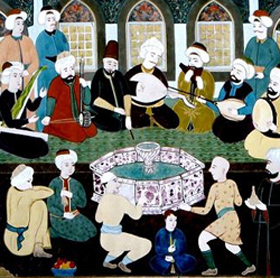
The women in Mideast rock point to their personal struggle against the stereotyped sexiness expected of them, but have no intention of relinquishing their piercings and mini-skirts. What abounds are off-the-cuff interviews, and the person who emerges most prominently is music producer Zeid Hamdan, called the “grandfather of Lebanese alternative music.” He talks about the themes of war, separation, broken dreams and uncertainty in a schizophrenic Arab culture that veers between conservative repression, and ads pitching drinking and sex. Here, instead it’s music cutting across borders, uniting Arab musicians from Egypt to Jordan, Lebanon, the West Bank and even Israel.Ī little disappointingly, the focus is not on live performances and there are only small snatches of informal and concert material. Yallah! has anyway proved a popular festival item this year, and its outspokenness should send a drumbeat to the young Arab audiences it primarily targets.Įslam’s acclaimed first film Istanbul United, co-directed with Olli Waldhauer, showed how fans of rival soccer teams came together to protest against the Turkish government, overcoming their bitter differences in the name of a common cause. While Eslam’s bits-and-pieces approach to filming the musicians is acceptable, and perhaps inevitable given their geographic separation, what’s missing is a big final clincher that would strengthen an overly mellow ending.

Shot over a four-year period, the film was funded in Germany, the Czech Republic, Egypt, the U.K., Canada and the U.S. Their refreshingly cool point of view bridges the gap with Western sensibilities and offers young audiences, in particular, a behind-the-scenes look at the sea changes taking place in social attitudes. German-born documentarist Farid Eslam examines the ongoing Middle East revolutions and their aftermath through the eyes of young musicians - rockers, rappers, rebels and alternatives - in Yallah! Underground.


 0 kommentar(er)
0 kommentar(er)
